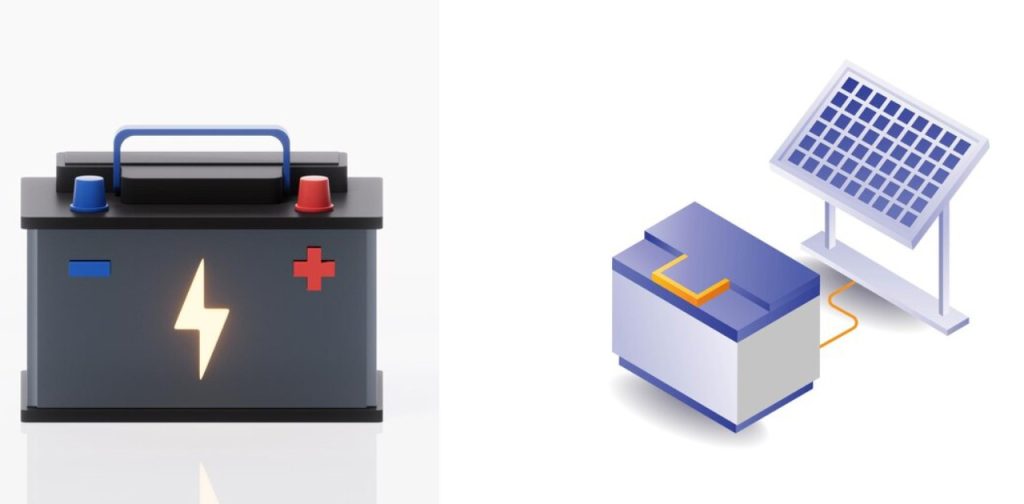When it comes to energy storage, batteries play a crucial role. However, not all batteries are created equal, especially when comparing solar vs normal batteries. Let’s explore the differences between these two types of batteries.
Solar Batteries are designed specifically for use in a solar power system. They store excess power generated by solar panels for later use, such as during nighttime or on cloudy days when the panels aren’t producing electricity. Companies like Redington Solar specialize in providing these types of batteries.
Normal Batteries, also known as conventional batteries, are typically used in various devices, such as remote controls, flashlights, and cars. They store energy chemically and release it as electricity when needed.
The differences between solar and normal batteries are significant:
- Purpose: Solar batteries are designed to handle the variable output from solar panels and store excess energy for later use. Normal batteries, on the other hand, are not designed for this purpose and are typically used to power small devices.
- Capacity: Solar batteries usually have a larger capacity compared to normal batteries. This is because they need to store enough energy to power a home or business during times when the solar panels aren’t generating electricity.
- Cycles: Solar batteries are designed for daily deep cycling, meaning they can be discharged and recharged many times without significant loss of capacity. Normal batteries, however, may not be designed for frequent deep cycling and can degrade faster when used in this way.
- Cost: Due to their larger capacity and specialized design, solar batteries are generally more expensive than normal batteries.
- Types: Solar batteries are typically either lead-acid (like a car battery) or lithium-ion (like a laptop battery), with lithium-ion batteries being more efficient and longer-lasting. Normal batteries can be alkaline, lithium, nickel-cadmium, or other types, depending on their intended use.
In conclusion, while solar batteries and normal batteries both store energy, they are designed for different purposes and have different capacities, life cycles, costs, and types. Therefore, they are not interchangeable, and using a normal battery in place of a solar battery in a solar power system would not be effective or efficient. When choosing between solar and normal batteries, these factors should be considered. The advantages of solar batteries such as their larger capacity and ability to handle deep cycling make them ideal for solar power systems, while the disadvantages of normal batteries, such as their inability to handle deep cycling and lower capacity, make them less suitable for such applications.





